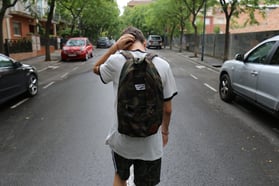1 min read
Correctly Caring for Campus Concussions
![]() Bobby Decker, Operations Specialist
:
September 20, 2018
Bobby Decker, Operations Specialist
:
September 20, 2018
Perhaps the title of this blog post sacrificed some clarity for the sake of alliteration, so here's what it's about. One of the more common injuries on a school campus is concussions. It’s the perfect storm - younger children are still getting their sea legs, teenagers are pretty confident they’re indestructible, and adults are busy, distracted, and occasionally overtired. That’s before we even account for the roughly 10% of athletic injuries that are concussions, according to a study from the Journal of Athletic Training.

While society has often minimized the seriousness of head injuries with common phrases like “getting your bell rung” or “seeing stars,” a concussion can easily become a traumatic brain injury with lifelong consequences. With this in mind, it’s critically important for your school to have someone on campus who can quickly identify the symptoms of a concussion, notify parents or guardians immediately, and urge that the patient see a doctor.
Concussion Symptoms
In some cases, concussion symptoms don’t appear immediately, so anyone suffering a head injury should be monitored in the following weeks. In the aftermath of the incident, however, concussion symptoms may manifest as:
- Headache
- Dizziness
- Feeling “foggy”
- Loss of memory surrounding the event that led to the concussion
- Irritability
- Nausea
Additional symptoms may present themselves and should be monitored closely as well.
Pushing Parents and Guardians to the Doctor
The severity of a concussion cannot be determined from the outside. If a concussion is not seen by a medical professional in that 48-hour period, the risk for complications is notably higher. A doctor concerned about the potential for a traumatic brain injury may order an MRI. Otherwise, they’ll monitor the student’s symptoms and make recommendations themselves. Regardless, your school is responsible for strongly recommending that a concussed student see a doctor ASAP.
Support Your Students
Once an injured student is ready to return to school, they'll still need additional support. As much as possible, they should keep brain activity below a level that results in symptoms such as headache, tiredness, and irritability.
To sum up your school's role: Identify the signs and symptoms early. Notify the parents immediately and strongly recommend visiting a doctor. Support the student as they slowly integrate back into daily routines.
If managing this seems challenging, consider learning more about our Joffe Health Aide program. We assist our partner schools in this way by providing a capable and well-vetted medical professional who can manage your school's health office and on-campus medical treatment.

